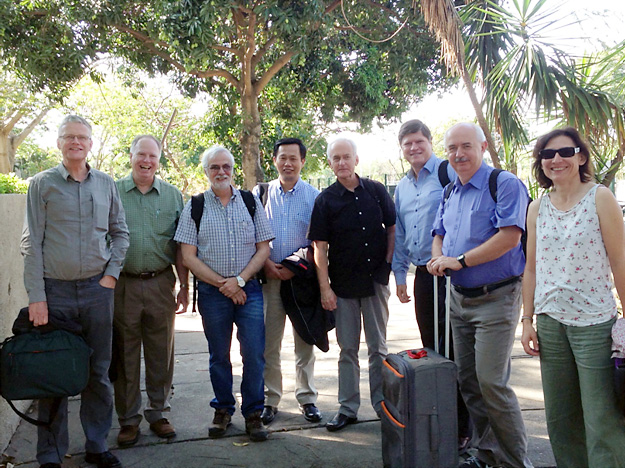The Executive Committee (EC) of the ICA is meeting twice a year to discuss related issues, analyse the performance of the instruments of the organisation and make operational and strategic decisions. But how does an EC meeting work? I want to give you some insight from my subjective perspective.
The meeting dates are set nearly a year beforehand to make sure that most of the ten members of the EC can make it. There are three central roles in preparing an EC meeting: the local host, which takes care of all arrangements needed to host the EC; the Secretary-General, which sets up the agenda, collects all necessary documents and sends hundreds of emails to communicate with all colleagues; and the president, which tries to steer the EC into the currently most important issues by prioritizing the agenda and asking for input, opinions, decisions and allowing and aggregating discussions.
Usually there are a lot of constraints to consider when scheduling such a meeting; most of them have something to do with the “bread jobs” of the EC members. That’s why not all are arriving at the same day and eventually will not leave with the same flight as well. Thus, time is always short and a “quick” start into the agenda is needed to make sure that the time is well used.
The rooms the EC uses for its meetings have something in common, which I would describe as “no-frills” – nothing to distract the colleagues from their work. However, WiFi and a projector are requirements our Secretary-General is insisting on; some of the colleagues – including myself – would add coffee to this basic requirement list 🙂
The dynamics of such a meeting are always heterogeneous and hard to predict. There are routine items to discuss, which eventually take much longer than expected. There might be controversial items to discuss, which are on the agenda since years, which all of a sudden are noted and acclaimed. This has to do with understanding the EC as a group of persons finding themselves in a permanent process about their views, perspectives and shared and common understandings, rather than in unalterable fixed positions. For this reason major issues of core concern to the ICA – such as commissions, conferences, research directions or publications – are regularly put up for discussion. These discussions are not always leading to the same results but rather reflect that process as well.
Usually, an EC Meeting is accompanied with visits or meetings with representatives of the local host country. This allows interesting insights into the local activities and interests as well as the possibility to socialize with our hosts.

Impression of the last EC meeting in Rio de Janeiro. From left to right: Menno-Jan Kraak, Tim Trainor, Paulo Menezes, Yaolin Liu, William Cartwright, Derek Clarke, Laszlo Zentai and Anne Ruas
As in every group, also an EC meeting develops group dynamics: There are some who are reluctant, some who are cautious, some who are focused, some who are very well organised and prepared and some, who need the inspiration of the meeting itself to order their thoughts and opinions.
It is amazing to see that there can be a tough discussion with very emotional and opposing arguments but a friendly, calm atmosphere right after that. It is amazing to see that there can be fun and jokes and sharing of stories of private life as well. It is amazing to see, that what all EC members have in common, is their commitment towards cartography and their belief in the importance of the International Cartographic Association. They take responsibility, not because they have been forced to do so, but because they are convinced of the importance of being an EC member. Some of them spend private money and dedicate precious time, which they need to be prepared to argue when they are asked from their boss to justify such a travel. Most of them have leading roles in their respective professional backgrounds and are still able to make themselves available for all kind of roles which might be needed in a volunteer organisation.
They, this is Secretary-General Laszlo Zentai, Past-President William Cartwright, Vice-Presidents Anne Ruas, Derek Clarke, Tim Trainor, Menno-Jan Kraak, Yaolin Liu, Paulo Menezes and Sukendra Martha.
– Georg Gartner




